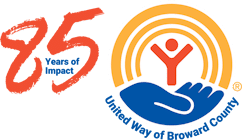Breathe. No, I mean take a deep breath. Fill up your lungs and exhale through your mouth. Pay attention to your body.
Now, if you’re like me, I’m sitting on my balcony and admiring nature. Listening to the birds chirp. No, really I am. I’m being mindful of the things in my environment that I often ignore.
Okay, now that we’ve got that out of the way, let’s talk. Across the country, millions of families are .png) preparing for virtual school. I have to admit, I did not think we would be here in March. Like so many, I made the assumption that things would return to “normal” fairly quickly. That our children would be back in the classroom with their friends, playing pranks and doing what all school-aged children do. Yet, here we are.
preparing for virtual school. I have to admit, I did not think we would be here in March. Like so many, I made the assumption that things would return to “normal” fairly quickly. That our children would be back in the classroom with their friends, playing pranks and doing what all school-aged children do. Yet, here we are.
So, how do we help our children cope? Well, teaching your children the practice of mindfulness and meditation is an excellent tool to help them navigate this “new” normal.
Mindfulness is a practice that helps build confidence, helps us cope with stress and relate to challenging moments – challenging moments like being away from friends and school personnel you’ve grown to love. Research shows the earlier we adopt a practice of mindfulness, the greater opportunity we have to cultivate resilience. If increasing resilience isn’t enough for you to consider teaching your children the practice of mindfulness, how about positive impact on executive functions?
Teaching mindfulness can help shape three critical skills developed in early childhood:
- Paying attention and remembering information
- Shifting back and forth between tasks
- Behaving appropriately with others
These abilities are essential for more advanced tasks like planning, reasoning, problem-solving and positive social relationships. Mindfulness also helps decrease the likelihood of developing depression and/or anxiety.
So, now you’re asking, “What can I can do as a parent or caregiver?” Well, luckily, Mindful.org has provided us with activities that can help build a practice of mindfulness.
MINDFULNESS ACTIVITIES FOR KIDS
(from Mindful.org)
To introduce the idea of mindfulness more directly to your kids, you can use exercises that encourage them to tune into their senses. Make a game out of eating a snack very slowly, savoring the smell, texture, and taste. Or, dive into an afternoon of glitter jar making with any variety of materials: glitter, different-coloured beads, food colouring and oil, pieces of lego. The DIY craft doubles as a creative exercise and a mindfulness tool to represent the mind settling.
AN APPRECIATION PRACTICE FOR CHILDREN
Leading the game:
- Ask your child: “Do you ever feel disappointed by something or someone?”
- Ask: “How did that make you feel?” Acknowledge their feelings and, if appropriate, talk about them.
- Say something like: “I bet even when you’re feeling disappointed there are good things happening in your life, too. Let’s name three good things together.”
Tips for naming three good things:
- Remind your child that the point of this game isn’t to pretend they’re not upset when they feel upset. It’s to remember that they can feel two things at once: they can feel grateful for good things while feeling sad, hurt, or disappointed by challenges.
- If children or teens have trouble thinking of three good things on their own, brainstorm and help them discover some.
- When kids understand that this game is not about sweeping their feelings under the rug, the phrase “three good things” can become a playful and humorous response to the minor gripes that show up in family life.
- Parents can encourage kids to remind them to name Three Good Things when they’re stuck on a trivial disappointment or minor annoyance, too.
- To develop a habit of thankfulness, play Three Good Things around the dinner table, before bedtime, and at other times when the family is together.
During this pandemic, when so much is uncertain, it’s important to reduce stress and increase resiliency. Click here for some tips on maintaining mental wellness during COVID-19

